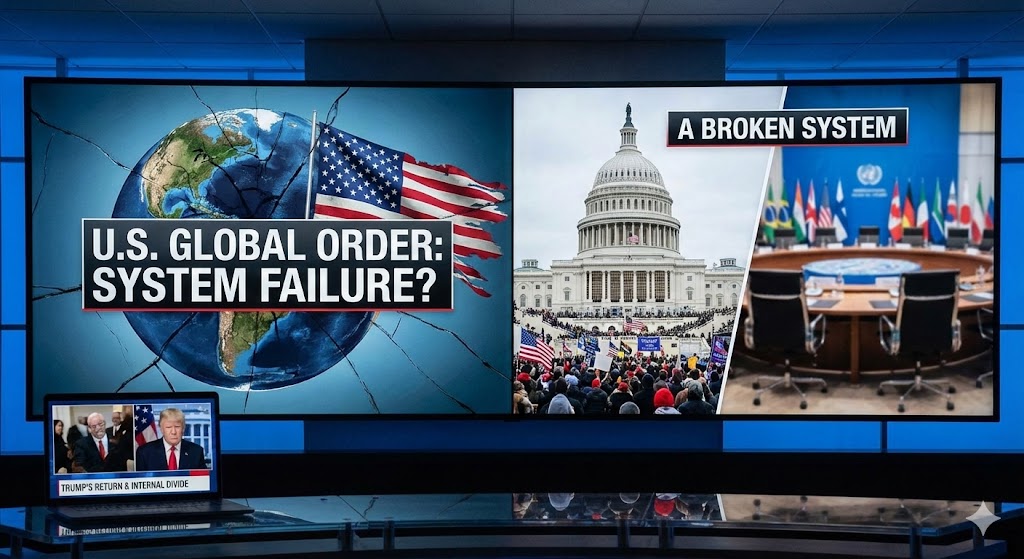A direct war between the USA and China would have profound political and financial repercussions on a global scale. Given the military capabilities and economic interdependencies of these two superpowers, such a conflict would destabilize not only their economies but also the entire world. This article will delve into the political and financial implications of such a war, providing a comprehensive analysis supported by data. Here’s a preview of the key areas that will be covered in the full analysis:
Political Repercussions:
- Global Political Realignment:
A USA-China conflict would force countries around the world to choose sides. NATO allies, countries in the Indo-Pacific region, and others would be pressured to support either the US or China, leading to a reconfiguration of global alliances.
- NATO and EU Response: Europe and NATO members would likely support the US but could face internal divisions as many European economies are significantly dependent on trade with China.
- Russia’s Role: Russia could either align with China or exploit the situation to advance its own geopolitical goals, adding another layer of complexity to the global political landscape.
- Southeast Asia: Countries in this region, including Taiwan, the Philippines, and Vietnam, would be directly affected, as they are in the proximity of the conflict zone and have vital strategic interests.
- Impact on Global Governance:
The United Nations and international institutions like the World Trade Organization (WTO) would be severely undermined. Multilateralism would struggle in the face of military action between two permanent UN Security Council members.
- Diplomatic Efforts and Failures: Diplomatic negotiations would be initiated, but the ability to prevent escalation would largely depend on the willingness of global powers to enforce ceasefire agreements.
- Regional Instability:
Direct military action would likely trigger regional conflicts, particularly in areas like the South China Sea and Taiwan Strait.
- Taiwan Conflict: China’s ambitions to reunify with Taiwan would likely be central to the war, resulting in intense military confrontations in the region. The outcome could redefine territorial borders and sovereignty claims.
- North Korea and Japan: North Korea could use the war as an opportunity to push its own military agenda, while Japan would be forced to significantly boost its military defenses.
Financial Repercussions:
- Global Economic Recession:
The combined GDP of the USA and China is approximately 40% of the global economy. A war between these two giants would cause severe disruption to global supply chains, trade, and financial markets, potentially triggering a global recession.
- Global GDP Decline: Studies estimate that a prolonged conflict could lead to a contraction of global GDP by 10-15%, with developing economies suffering the most.
- Stock Market Collapse: Equity markets across the globe would crash as investor confidence is shaken. Major indices like the S&P 500, NASDAQ, and Shanghai Composite would experience double-digit losses.
- Disruption of Global Trade:
China and the USA are the world’s largest trading partners, with trade between them amounting to over $700 billion annually. The conflict would halt trade flows, disrupt manufacturing, and create shortages in everything from electronics to consumer goods.
- Supply Chain Crisis: Global companies that rely on Chinese manufacturing, such as Apple and Tesla, would face production halts. The global semiconductor industry, already fragile, would be significantly disrupted.
- Commodity Prices: The prices of commodities such as oil, rare earth metals, and foodstuffs would spike, exacerbating inflationary pressures worldwide.
- Impact on Energy Markets:
China and the USA are both massive consumers of energy. The conflict would cause a significant reshuffling of global energy markets.
- Oil Prices Surge: A conflict could push oil prices well beyond $150 per barrel as supply routes in the South China Sea and Middle Eastern pipelines come under threat.
- Global Energy Crisis: Countries reliant on imports from these two nations could experience shortages, leading to blackouts and production slowdowns.
- Financial Markets and Currency War:
As the US dollar and Chinese yuan are key global currencies, the war would trigger a currency crisis. Nations holding substantial reserves in USD or yuan would scramble to stabilize their economies.
- Currency Devaluation: Both currencies would likely devalue, and nations could shift to holding euros or gold, further destabilizing global financial markets.
- Bond Market Turmoil: The bond markets would experience high volatility as investors flee from US and Chinese sovereign debt, causing interest rates to spike globally.
Conclusion: Potential Global Collapse or Realignment
While the full-scale impact of a war between the USA and China is hard to predict, the consequences would be catastrophic for the global political and financial order. The world economy would face unprecedented disruption, with far-reaching effects that could persist for decades. The article will expand on these scenarios, providing data-driven insights and possible outcomes for each aspect of global governance, finance, and trade.
This is just the beginning of the exploration. In the full article, we will examine specific data on military spending, trade volumes, economic dependencies, and projected losses to provide a thorough and professional analysis of what such a conflict would mean for the world.









